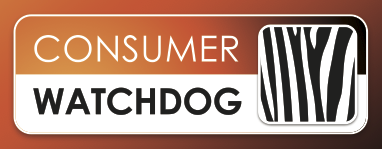Perhaps the most important comes from Section 13 (1) (a) of the Consumer Protection Regulations. This says that “any supplier who offers a commodity or service to a consumer fails to meet minimum standards and specifications if … the commodity sold … is not of merchantable quality”. “Merchantable quality” is defined in the Regulations as “fit for the purposes for which commodities of that kind are usually purchased, as it is reasonable to expect in light of the relevant circumstances”.
Put simply this means that what you buy must actually DO what you were told it would do or what you could reasonably think it would do. A cellphone must be able to make and receive both phone calls and text messages. If you were told that you’d be able to surf the web with it then that must be true. An iron must heat up and allow you to press your clothes. A vehicle must be capable of transporting you from A to B.
The same section forbids suppliers from offering items that don’t “match any sample or description given to the consumer” or that aren’t fit “for any particular purpose made known by the consumer”. In other words what the guy in the stores says about the item you buy must be true. If you request a particular function or capability from the store then that’s what you must be given. Otherwise they’re in trouble.
Section 13 (1) (c) is another powerful weapon. This says that a supplier has transgressed if “representation is made that the commodity is new when in fact it has deteriorated, or it has been altered, reconditioned, used or is second hand”. In other words, new means new. A store is simply prohibited from selling you something that isn’t new unless they make it very clear that this is the case. A sofa they repossessed from a customer yesterday can’t be sold as new. The same goes for a cellphone that was returned by another customer, even if they never actually used it. It someone else took it out of the box and touched it, it’s no longer new. It’s as simple as that.
One of my favourites is Section 13 (1) (e) which says that a supplier is in trouble if “the advertisement or representation of a commodity or service is made with the intent not to dispose of the commodity or service as advertised or represented”.
I think you can interpret that in a number of really useful ways. It means, for instance, that if an item is priced on the store’s shelf as P35.95 and when you get to the till they try and charge you P45.95 then they’re broken that rule. They’re not selling it as it was “advertised or represented”, are they? It also means that if something is advertised for sale in South African Rands then you should be able to pay for it in Rands. Most of us have seen this, sometimes with just a Rand sticker, other time with both a Rand price and a Pula price. I think this mean you can demand to pay using the Rands you have left over from your last trip south. In fact, you should try that next time you see something priced in Rands. The store will say No of course but it’s worth explaining to them that you know your rights and are prepared to stand up for them.
I also have a fondness for Section 15 (1) (b) which says that a supplier fails “to meet minimum standards of performance” if they quote “scientific or technical data in support of a claim unless the data can be readily substantiated”.
You know what that means? It means homeopathy, reflexology, acupuncture and all those silly electronic devices with names like QXCI, SCIO, and “Quantum Resonance Magnetic Analyzer” are all in breach of the law and that anyone peddling them and making ridiculous claims about their benefits are acting illegally.
In fact, the people who were doing their best last year to sell that last one, the absurdly named “Quantum Resonance Magnetic Analyzer” made some remarkable claims. They said that once you’re plugged into the device you’ll get “a complete body assessment” and that a “98 page report is generated reflecting various conditions of the body’s health systems producing 39 reports and 238 test results.”
They went on to claim that it can test you for 41 different areas, including “Cardiovascular and Cerebrovascular”, “Brain Nerve”, “Blood Sugar”, “Immune System”, “Human Toxin”, “Heavy Metal” and “Basic Physical Quality”.
Section 15 (1) (d) of the Regulations says that a supplier “shall fail to meet minimum standards of performance if” they advertise something “with intent not to supply reasonably expected public demand”. So a special offer or a discount that is advertised has to be backed up by sufficient quantities of the product to satisfy a normal level of interest. For instance a store can’t advertise fantastic reductions on the price of televisions if there’s only one discounted TV in stock.
The only exception to this rule is “unless the advertisement discloses a limitation of quantity”. So if the store only has a handful of items they want to discount and dispose of they have to be open and honest about that. All it takes is for them to say something like “but we only have 5 left, it’s first-come, first served!” Anything else is abuse.
 |
| Source: A poll conducted on May 2017 on Facebook. Yes, Facebook, so you know it's meaningless, Ok? |
We do now.



No comments:
Post a Comment